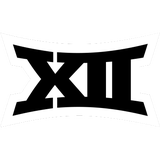
Bowlsby: FBI probe of college hoops 'not going away soon'
KANSAS CITY, Mo. (AP) Big 12 Commissioner Bob Bowlsby believes the federal investigation into corruption in college basketball has brought to light a seedy underbelly of the sport that people have known about all along.
Bowlsby, who spoke during the Big 12's media day Tuesday, also thinks the investigation that has brought down Louisville coach Rick Pitino and athletic director Tom Jurich is not going away soon.
''We certainly have always known all the best parts of college athletics and all the worst parts of college athletics are embedded in the sport of men's college basketball,'' Bowlsby said. ''Lots of high-risk academic people and high-risk social people and lots of third-parties involved, and I think it's impossible to know at this point how far this goes or who might be involved in it.''
Federal prosecutors have accused 10 men, including four assistants at Power Five conference schools, of funneling money to prospects in an attempt to direct them to certain schools, agents and companies. The probe hit the Big 12 when former Oklahoma State assistant Lamont Evans was charged in the case.
''I know everybody wants answers to all those things,'' Cowboys coach Mike Boynton said. ''I really can't answer much in regards to the investigation. But when that headline comes across your phone, I was shocked. That's really all I can say about initial feelings and thoughts about it.''
The NCAA has already formed a commission, independent from the organization's governance, to study the inner workings of the sport. It is being chaired by former Secretary of State Condoleezza Rice.
Bowlsby said the Big 12 provided some guidance to athletic directors during a meeting last week, and there has been additional guidance from the NCAA heading into the next season.
''Surveillance of rule compliance is something our schools do all the time. It's routine, almost a daily part of how they operate,'' Bowlsby said. ''I don't know that any of this necessitates radical change in procedures on each campus. But I think it informs administrators to ask questions.''
Bowlsby, who is closely involved in college football governance, has wondered whether the tentacles of the investigation could spread into other sports - especially the NCAA's most lucrative sport.
''There are some of the same things present in college football,'' he said. ''But I think a lot of the basketball challenges are embedded in the club programs. If you're a top-200 player in college basketball, from a purely letter-of-the-law basis, you're likely to have been professionalized at some point in the process leading up to your recruitment, just through the benefits you've received.
''There are some problems that are baked in that are perhaps a little more prevalent because of the structure of college basketball,'' Bowlsby continued, ''but you don't have to have too vivid an imagination to see this showing up in other sports.''
Bowlsby wouldn't even guess how long the federal probe will take, nor how many other schools might be implicated. But he pointed out that the Department of Justice and FBI have the power to subpoena and power of perjury, giving federal prosecutors the ability to dig far deeper than the NCAA.
''As a result, this is going to be around for a while,'' he said, ''and we're likely to be in the same situation we're in now We don't have very much information and we aren't going to get a heads up before something happens, and as a result it's a period of discomfort.''
---
For more AP college basketball coverage: http://collegebasketball.ap.org and http://twitter.com/AP-Top25
